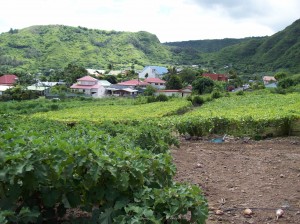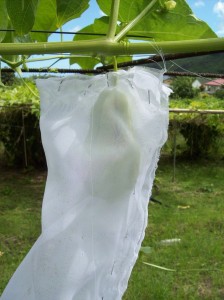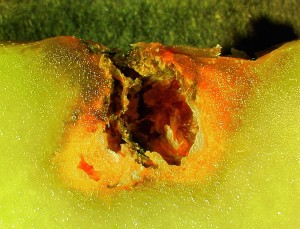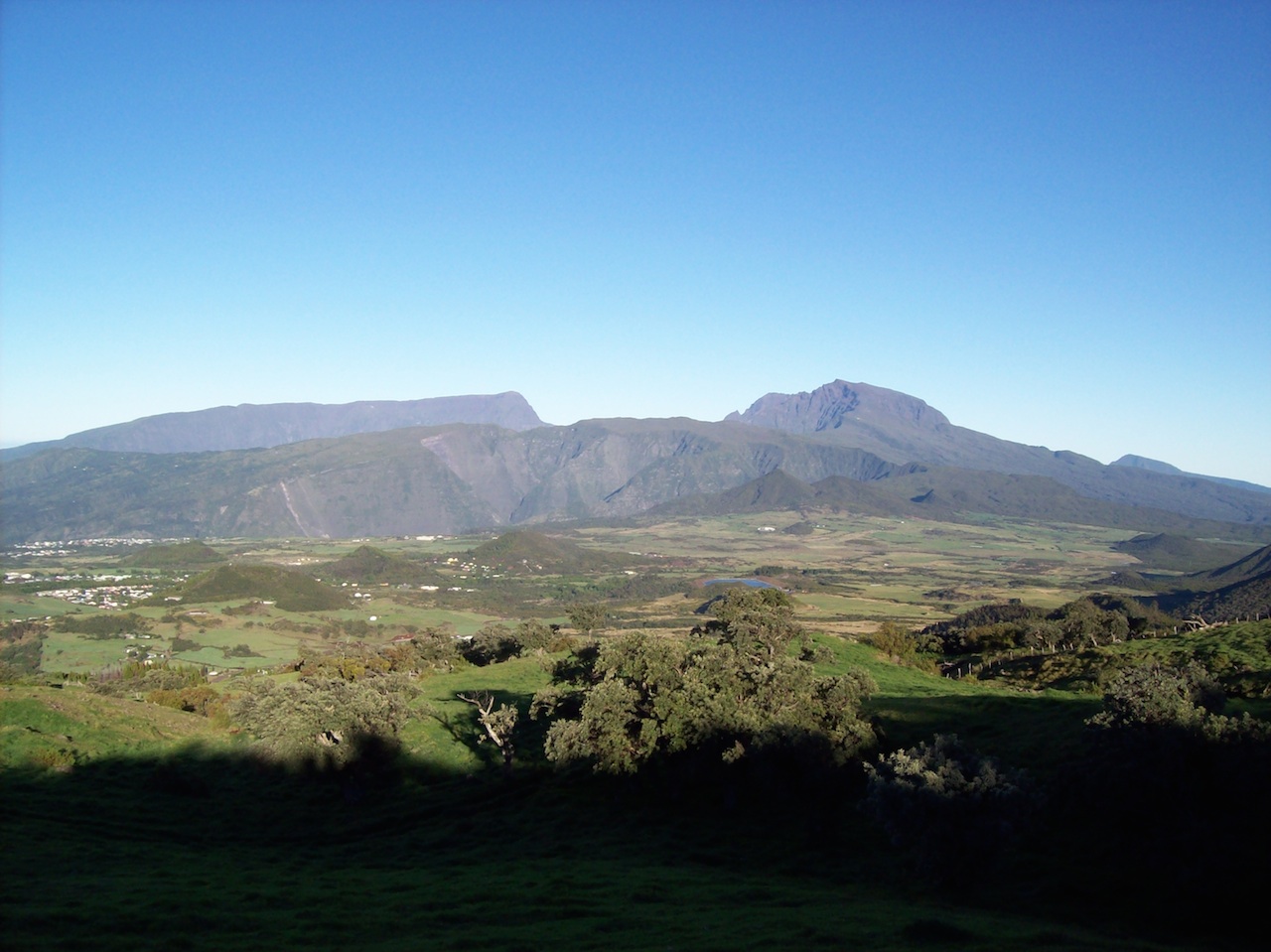As I explain ithere, Reunion Island is confronted with problems of management of populations of crop insect pests such as Tephritidae flies (more information, ici).
These flies develop to the detriment of fruits and vegetables, the role of CIRAD de La Réunion (Centre de Coopération Internationale en Recherche Agronomique pour le Développement) is to bring knowledge and new methods of control more effective and more respectful for the environment (“agro-ecology”).
I did my final internship at the Pôle de Protection des Plantes for 6 months (see ici).
Presentation of my research work :
These studies were conducted both by observations in situ, directly in the field (see photo), and by laboratory experiments. I present here the most interesting results.
– In fields, my research consisted in 1) understanding the spatiotemporal dynamics of flies in the plots of chouchou (Sechium adule) studied and peripheral plants. To do this, I had to observe and record where Tephritid flies, species, sex and type of behaviour (flight, rest, reproduction and feeding) were found; 2) estimate the damage to production caused by flies.
caption id=”attachment_646″ align=”alignright” width=”300″] Study plot (Entre-Deux)[/caption]
Study plot (Entre-Deux)[/caption]
Solanum auriculatum), brown avocado (Litsea glutinosa), night beauty (Mirabilis jalapa) or fodder cane, 3) that Tephritids spent the day under the pet leaves and on fruits, 4) that flies did not cause damage on pet fruits (deformation or fall).
For this last point, I isolated young pampered fruits from flies with a net, then I followed the development of these fruits to compare it to that of fruits in contact with flies and having undergone bites (see photo). This is how I was able to show that the fruit falls and deformations did not take their origin in the presence of Tephritid flies because no larval development seems to occur in the fruit.
caption id=”attachment_649″ align=”alignleft” width=”207″] Young pampered fruit isolated from Tephritids flies[/caption]
Young pampered fruit isolated from Tephritids flies[/caption]
– In the laboratory, I undertook experiments to confirm this finding. So I laid the 3 species of Tephritidae (B. cucurbitae, D. ciliatus and D. demmerezi) on chouchou fruits of different sizes to monitor larval development.
Against all expectations, this experiment showed that Tephritidae larvae were unable to complete their development cycle in chouchou fruits. Larvae die quickly because they are unable to feed. The fruit seems to have a resistance mechanism to fly larvae attack by drying the pulp around the eggs and larvae forming a dry cavity (see photo).
– In conclusion, my studies have brought new knowledge on fly biology, their interactions with the chouchou (Sechium edule) and a new look on fly management. Control methods are therefore based on the massive application of food insecticides on plots of chouchou. Despite almost daily treatments, with significant ecological, economic and health consequences, the effects were negligible. By showing that the flies, not feeding on the cultivated plots, living under the leaves, spending the night off the cultivated plot, were never in contact with the insecticide.  My work has therefore made it possible to propose the use of a more agro-ecological control method, called “Push-Pull assisted”, which consists in applying small doses of food insecticides on peripheral plants where flies feed and spend the night. Also, as chouchou fruits are not a favourable host for Tephritids, control must focus on more fly-friendly plots such as zucchini. Trials were undertaken before my arrival in courgette plots surrounded by maize plants (an attractive species for flies). Encouraging results on fly population regulation have been obtained with this methodology.
My work has therefore made it possible to propose the use of a more agro-ecological control method, called “Push-Pull assisted”, which consists in applying small doses of food insecticides on peripheral plants where flies feed and spend the night. Also, as chouchou fruits are not a favourable host for Tephritids, control must focus on more fly-friendly plots such as zucchini. Trials were undertaken before my arrival in courgette plots surrounded by maize plants (an attractive species for flies). Encouraging results on fly population regulation have been obtained with this methodology.


